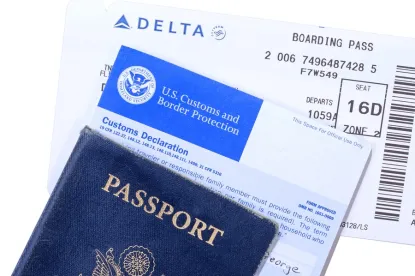The IRS is reminding taxpayers to pay their taxes or face possible loss of their U.S. passports.
In partnership with the IRS, the Department of State (DOS) may deny passport applications, renewals, or even revoke passports of individuals with “seriously delinquent tax debts.” This is based on a section of an infrastructure bill, the Fixing America’s Surface Transportation (FAST) Act, signed into law in 2015. The IRS began sending certifications of unpaid taxes to the DOS in February 2018.
Fifty-one thousand dollars in back taxes, penalties, and interest is the general baseline for a “seriously delinquent” debt and the IRS must have filed a Notice of Federal Tax Lien.
To avoid passport consequences, the taxpayer can pay the debt in full, enter into one of a number of compromise agreements with the IRS, or have an appeal or a request for innocent spouse relief pending. There are exemptions for those in bankruptcy, victims of tax-related identify theft, those in hardship or living in federally declared disaster areas, as well as for those serving in combat zones.
The DOS will notify individuals in writing if a passport application is denied or if a passport has been revoked. Once the debt is resolved, the IRS will notify the DOS. It will be up to the DOS to approve the passport application or remove the revocation.
Should an individual whose passport application has been denied or who is in receipt of a notice of revocation need his or her passport for imminent travel or work, the tax debt must be resolved before there can be any remediation. Individuals who have received a notice of certification but no revocation may continue to travel on their current passports. The risk is that the passport may be revoked while the individual is travelling outside of the U.S.
Suits can be filed in U.S. District Court or Tax Court to determine if the IRS issued the certification of unpaid taxes erroneously.
President Donald Trump has promoted enforcement through agency coordination. This DOS-IRS alliance is only one of the ways that the IRS is coordinating with other agencies regarding immigration matters. For instance, the IRS has coordinated with ICE and reported large cash payments (thought to be “under the table payments” to undocumented workers) that led to one of the largest reported worksite raids.




 />i
/>i

